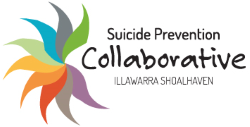'Loneliness is a universal yet deeply personal experience'
Despite what many of us had hoped, COVID is continuing to interrupt our routines, the ways we move around our community and our social interactions.
Through the pandemic, many of us have developed a deeper, personal understanding of the importance of social connectedness to our physical and mental wellbeing. Our own experiences have made it easier to understand why research studies show that loneliness and isolation are associated with a 26-29 per cent increase in early mortality.
Ann Picton's words in this week's article about the challenges of lockdown and isolation in an aged care facility captured this, along with her strength and resilience, perfectly. We need to feel connected to others to feel well and make life worth living.
Healthcare is increasingly recognising the importance of social connectedness in wellbeing. COORDINARE - South Eastern NSW PHN has partnered with Primary and Community Care Services (PCCS) to deliver a new social prescribing service in the Illawarra Shoalhaven. People experiencing chronic health conditions, loneliness, or other social factors that negatively impact their health such as housing and access to healthy foods, can access the 12-week service via a referral from their GP. The service can link them to over 2000 local non-clinical services such as art classes, walking groups, social support services or peer groups to improve their goals for community connectedness, and ultimately, mind-body care.
Researchers are also looking at how the physical environment impacts social connectedness. Not surprisingly, studies show that being out in nature and enjoying green space can reduce feelings of loneliness and increase connection with the larger world. But if you reflect on how you felt the last time you watched the ocean, sat amongst the trees, or walked around the block in the fresh air, you probably didn't need research to tell you connection with nature is important!
During these challenging times, it's worth heeding the research. If your circumstances allow, a walk in the park or along the beach, sitting in the garden, or pausing to admire the beauty of the escarpment can give your wellbeing a boost. Enjoying the experience alongside a trusted friend or family member will likely give you an even greater sense of connection with the social and natural world around you. If you are in isolation or unwell, watching a nature documentary, observing the clouds pass across your window, or marvelling at the patterns on the palm of your hand can all give a nature boost.
This non-clinical approach to supporting positive mental health and wellbeing is something we see more and more in the field of suicide prevention. There's a common misunderstanding that support around suicide can only be provided by emergency departments and acute mental health care wards. While these services can and do play a role in providing physical safety and clinical treatment where needed, they're designed to provide medical-based support. Yet often the support needed by a person thinking about ending their life falls in the social domain - help with relationship breakdown, loneliness and isolation, loss of purpose and meaning, access to safe housing or other welfare.
Wollongong Safe Haven (open 2-10pm Wed-Sat, 55 Urunga Parade, Wollongong) and Lifeline (24/7, phone 13 11 14) recognise the lifesaving possibility of connecting meaningfully with another people, even anonymously. Being listened to, with compassion and free of judgement, can make a person feel valued and give them the opportunity to find solutions to the aspects of life causing distress.
Chronic health conditions or suicidal distress aside, we have experienced a disruption to our social connections due to the pandemic, and many of us have seen the impact on our day-to-day sense of wellbeing. Before a small problem turns into a major one, there's simple actions we can all do for ourselves and for those around us.
When it comes to loneliness, it's the quality of relationships rather than quantity that really counts. Aim to have a meaningful connection with someone each day. If it can't be in person (physically distanced and wearing masks for COVID safety) go for phone, email, text, video call, or write a letter. Take an extra few minutes to ask genuine questions and listen with intent. Aim for curiosity and kindness, not judgement. And if you or the person you are connecting with needs further support, reach out to Lifeline, Wollongong Safe Haven or Head to Health (phone 1800 595 212).
Living through the pandemic hasn't been easy and while our individual experiences have been unique and deeply personal, the impacts of loneliness on wellbeing are universal. Everyone needs to feel valued, included and connected to others to feel physically and mentally well.
Thank you to the Illawarra Mercury for inviting Jo Riley, Executive Member of the Illawarra Shoalhaven Suicide Prevention Collaborative to share her thoughts for this opinion piece.
